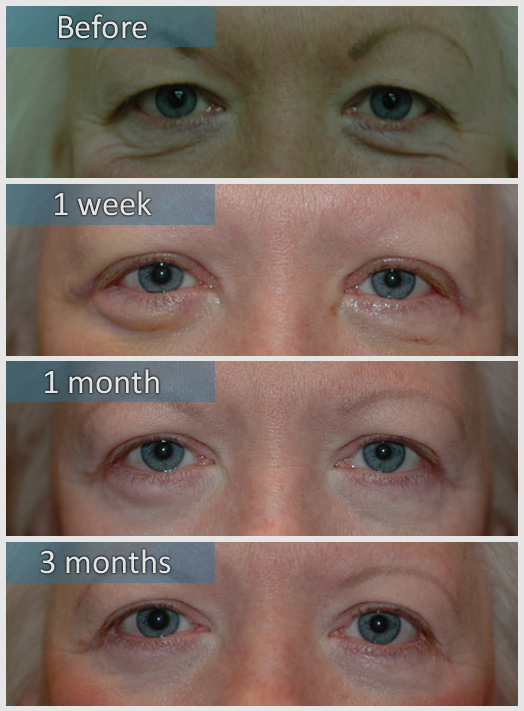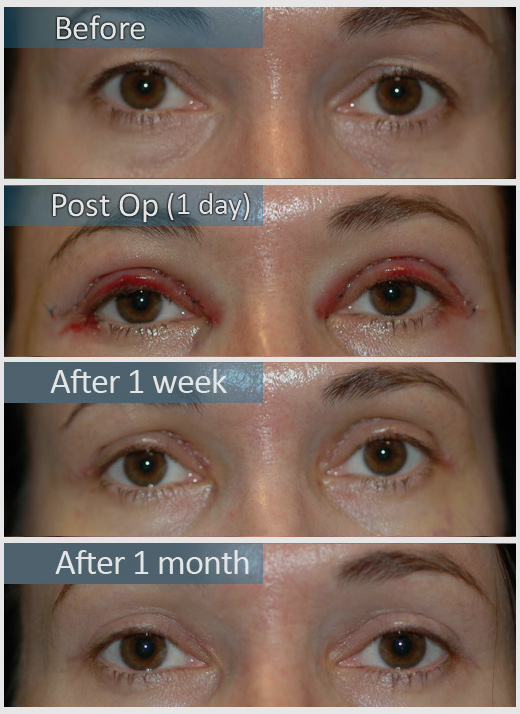How Much Swelling and Bruising?
As a natural reaction to tissue injury your body may swell and bruise. In the long run, swelling and bruising is of no significant consequence. However, in the short term, you will be able to see better and return to normal function sooner with less swelling and bruising. I can control most of the issues that cause bruising, but there are two things that cannot be controlled; the last stitch passed to close your wound and the relaxation of blood vessels after the anesthetic wears off.
The amount of reaction you experience depends upon a variety of factors. You can reduce the swelling and bruising dramatically by following some simple steps. First, do not take any aspirin or aspirin products at least ten to fourteen days prior to your surgery (see aspirin list below). Next, use cool or ice compresses as much as possible in the first three days following your surgery, particularly in the first day. Finally, by the third day, whatever amount of swelling and bruising you have will not go away with cool compresses. At this point, warm compresses will help promote healing by increasing the blood supply to the tissues. If you experience any excess swelling after beginning warm compresses, you may alternate warm and cool compresses.
Some patients feel the herbal Arnica Montana is helpful in preventing bruising or swelling. I have no strong feelings regarding this product, but those that use it are typically more compliant with all of our instructions, tend to live healthy lifestyles, and experience better than average results.
The photo series on the left demonstrates the amount of swelling after a four eyelid blepharoplasty. The photo series on the right demonstrates the amount of swelling after a two eyelid upper blepharoplasty. Please note that these photos represent outstanding results with very little postoperative swelling due to their compliance and a little good luck. Your results may vary.


